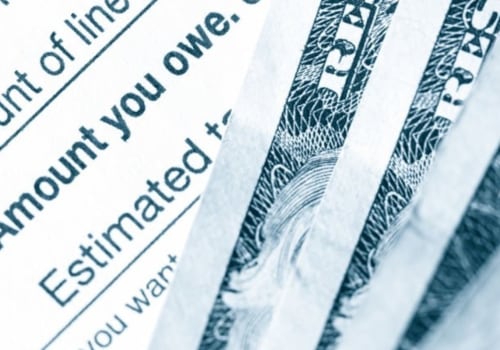The short answer is Yes, but it's best to seek professional help to get that forgiveness. Take a look at what every taxpayer needs to know about the IRS debt forgiveness program. The closest thing to the forgiveness of the tax debt is the Pledge Offer or the ICO. Basically, this is a settlement agreement that you entered into with the IRS.
An ICO allows you to pay much less than you actually owe to resolve your tax debt. Under certain circumstances, taxpayers can have their tax debt partially forgiven. When the IRS considers forgiving your tax liability, it first analyzes your current financial situation. This means that the IRS cannot charge more than you can reasonably pay.
If any collection action forces you to enter into a financial crisis in which you lose all sense of financial security, the IRS cannot collect back taxes. A tax lien is the government's lawsuit against your property, which will secure your interest on your assets if you don't pay your tax debt. The IRS often doesn't know what tax deductions or credits you might have qualified for, leading to a higher bill than you could have had if you had done it yourself. Many people who have trouble paying their tax bills would be better off asking the IRS for an installment payment plan.
To determine if you qualify for tax relief through a transaction offer, the IRS considers your ability to pay, your income and expenses, and the amount you have in assets. Any federal tax liens filed against you by the IRS won't go away until you've fulfilled your end of the deal. That fee may be higher than what you end up saving on your tax bill if the IRS accepts your transaction offer (and may not be refundable if the IRS rejects your offer). Programs like this allow taxpayers who owe back taxes to the IRS or who have a debt to the IRS to settle a smaller amount.
If you're faced with these collection actions and they seriously threaten your financial security, tax debt forgiveness may be what you need. The IRS can file or maintain current tax liens until it accepts your offer and you have fulfilled your end of the deal. If a tax relief company loses or delays your application, you still have to pay your tax debt, interest and penalties with the IRS. According to the IRS, it may be an option if you can't pay your tax debt at all or if doing so creates financial difficulties.
While attorneys, CPAs and registered agents may be employed in accordance with IRS Regulation 230, the use of the term “tax attorney” is used as a general or generic term referring to attorneys experienced in matters of tax relief and collection work. If you are concerned that you may not qualify for an OIC, consult a tax professional to see what IRS forgiveness options might be available to you. They will do so through your employer and will continue to garnish your salary until your tax debt is paid or other arrangements are made to pay your tax debt.



